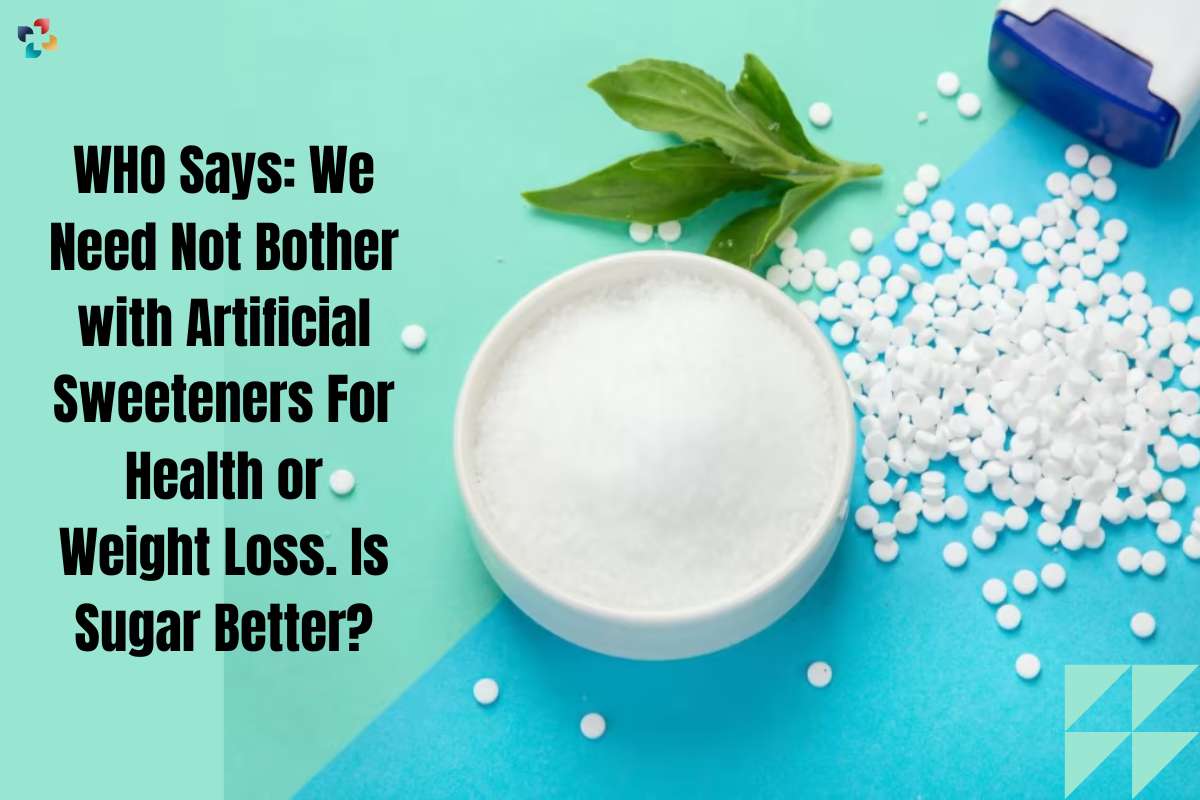The World Health Organisation (WHO) stated this week that “non-sugar sweeteners should not be used as a means of achieving weight control or reducing the risk of noncommunicable diseases” like diabetes and heart disease.
Artificial sweeteners are either naturally occurring substances or synthetic substances that have a similar sweetness to sugar and can even be up to 400 times sweeter by weight, but offer little to no energy. In contrast, sugar has 17 kilojoules (or four calories) per gramme, making one teaspoon equal to 85 kilojoules.
In Australia, a variety of artificial sweeteners are utilised. Others are derived from foods like monk fruit and the stevia plant, while some are synthetic.
What does this mean for people who have switched to artificial sweeteners for health reasons, given the revised WHO recommendations? Should they simply return to sugar?
Encouraged To Lose Weight
In the 1990s, when I was a clinical dietitian in practise, I can still clearly recall the emergence of artificial sweeteners in processed foods. They were marketed as a technique to add sugar in place of sugar in foods that would help people lose weight.
A can of soft drink with added sugar typically has 500kj in it. Theoretically, swapping out one can of sugar-sweetened soda every day for a can of artificially sweetened soda would cause you to lose around 1 kg of weight each month.
But research from the last few decades demonstrates that this is untrue.
On what is the new guidance based?
The WHO’s recommendation is supported by a systematic review it carried out. Its goal was to offer recommendations for the use of artificial sweeteners in disease prevention and weight management that were supported by research.
Given that obesity raises the risk of diseases like diabetes and several types of cancer, which are the top cause of mortality worldwide, weight management is crucial.
Data from various study types, which provide us with varied information, were included in the systematic review by the WHO:
- 50 of them were randomised controlled studies, in which researchers altered the diet while maintaining all other variables in order to determine its effects.
- 97 of them were prospective cohort studies, in which researchers watch a risk factor play out in a large group of people over time without intervening or making any changes to determine how it affects an outcome.
- 47 were case-control studies, a different kind of observational study that tracks and contrasts two groups of otherwise matched individuals, independent of the relevant risk factor.
Randomised controlled trials give us causal information that enables us to claim that the intervention caused the change we observed.
Case-control studies and prospective cohorts only provide associations or linkages. We are unable to show that the risk variables caused a change in the outcomes, in this case, weight, because there may be more risk factors at play that scientists are unaware of. However, they provide excellent hints as to what might be going on, especially if we are unable to conduct a trial because it would be immoral or dangerous to administer or withhold particular therapies.
The systematic review by the WHO examined mortality, non-communicable illnesses, and body fatness.
For body fatness, the randomised controlled trials revealed that individuals who consumed more artificial sweeteners had slightly lower weight than those who consumed less or none at all – an average of 0.71kg.
However, the cohort studies discovered that higher intakes of artificial sweeteners were linked to a higher BMI (0.14 kg/m2) and a 76% higher risk of being obese.
According to the prospective cohort studies, drinking more artificially sweetened beverages was associated with a 23% increased risk of type 2 diabetes. There was a 34% increase in the risk of diabetes if artificial sweeteners were used as a tabletop item (that the consumer added to foods and drinks).
Artificial sweeteners did not change or exacerbate any clinical diabetes monitoring signs in diabetics, including fasting blood sugar or insulin levels.
In long-term prospective observational studies that tracked patients for an average of 13 years, higher intakes of artificial sweeteners were linked to a higher risk of type 2 diabetes, cardiovascular disease, and death.
Artificial sweeteners, however, were not linked to variations in overall cancer incidence or early deaths from cancer.
Overall, even though the results of the randomised controlled trials suggested that those who use artificial sweeteners lose slightly more weight, the observational studies revealed that this population has a higher risk of obesity and worse health outcomes.
Are there any issues with the review?
Because the randomised controlled trials did demonstrate a slight weight loss advantage from using artificial sweeteners, the WHO’s recommendation has drawn considerable criticism.
But the WHO is quite clear that its recommendations are based on a variety of study methodologies, not simply randomised controlled trials.
The WHO also rated the studies in the review as having “low or very low certainty” in terms of their quality.
Also Read: How to Increase your Impact by Taking a Weight-Neutral Approach?







